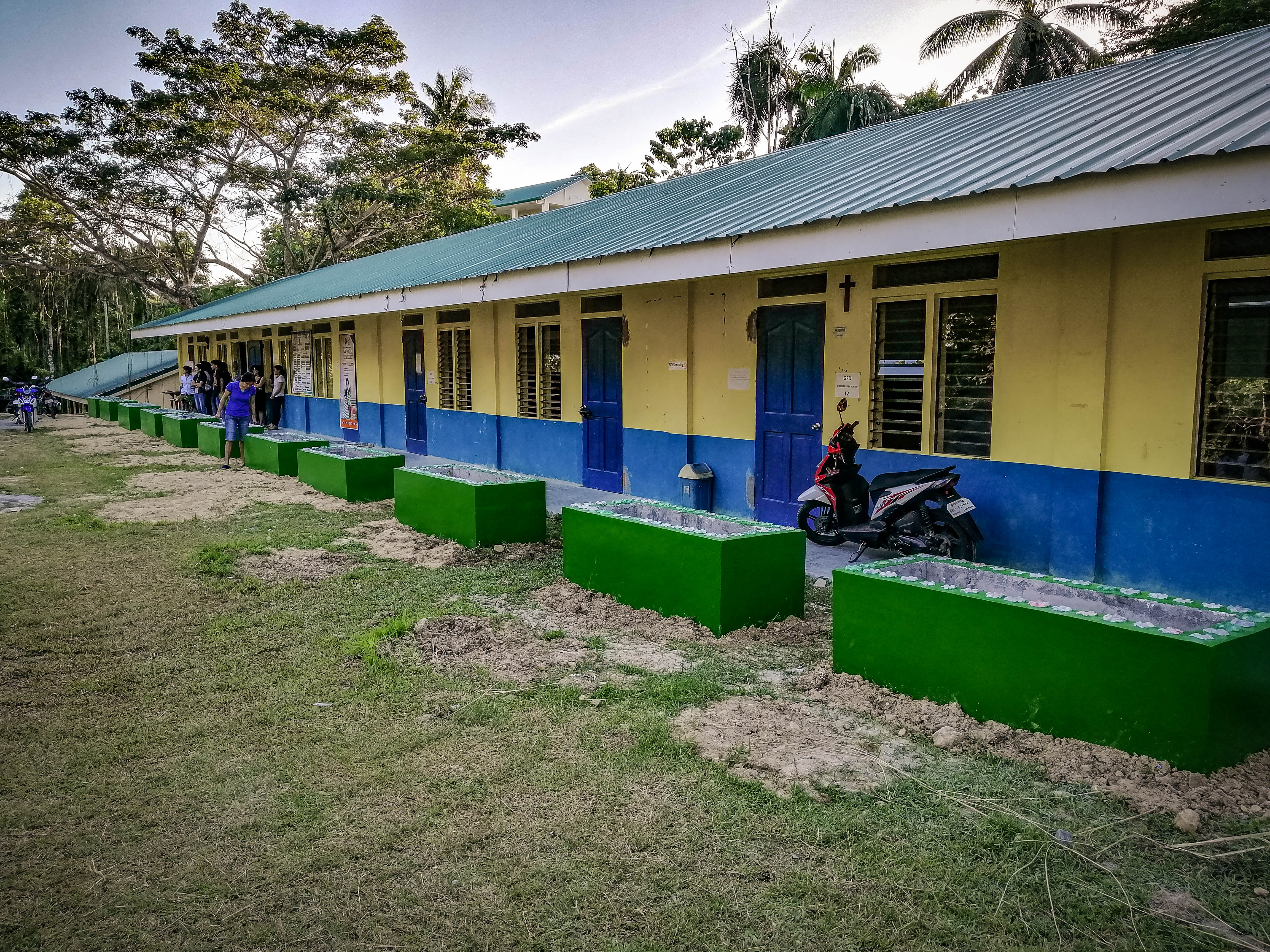WWF-Philippines, National Geographic Construct Eco-Plant Boxes in Bicol
January 2019

Eco-plant boxes outside Donsol Community College, Bicol. Photograph © WWF-Philippines
World Wide Fund for Nature (WWF) Philippines continues to work with National Geographic to bring new purpose to plastic pollution.
Late January 2019 saw the construction of eco-plant boxes in the community of Donsol, Sorsogon in the province of Bicol. More than 16,000 plastic cups were used to make eco-bricks, 1000 of which were used in the construction of plant boxes, each of which were almost two meters in length. The planters were placed outside Donsol Community College. 250 more eco-bricks were made into benches, also placed in Donsol.

An eco-plant box under construction. Over 16,000 plastic cups were collected during Earth Day Run 2018, which were repurposed into over 1,000 eco-bricks, which were used in the construction of the eco-plant boxes in Bicol. Photograph © WWF-Philippines
The project was conceptualized in lieu of WWF-Philippines’ #AyokoNgPlastik movement. The movement, which aims to address pollution caused by the use and improper disposal of single-use plastics, was launched in November of 2018. National Geographic is a committed supporter of the #AyokoNgPlastik movement, which began with the reduction of single-use plastics during its Earth Day Run 2018.
The effort was also made in support of the communities’ solid waste management program. The local government of Donsol has doubled down on its plastics problem, with other efforts including the construction of a materials recovery facility. Aside from addressing plastic pollution, the eco-planters are a financially sound form of local beautification that can be used to promote small-scale urban farming within the municipality.
“It’s very economical. We hardly use cement or sand, since the body is plastic. It’s cheaper, too,” says Manuel Narvadez, WWF-Philippines Project Manager.
“The local government of Donsol just passed an ordinance banning single-use plastics in their community. They’re doing a good job to reduce plastics in their municipality,” adds Narvadez. Planters have been constructed in Donsol, and more are slated to be put up in the neighboring community of Pilar. Narvadez hopes that other local governments in the region adopt the idea for their own communities.
For more information, please contact:
Communications & Media Manager Mr. Dan Ramirez (dramirez@wwf.org.ph)
